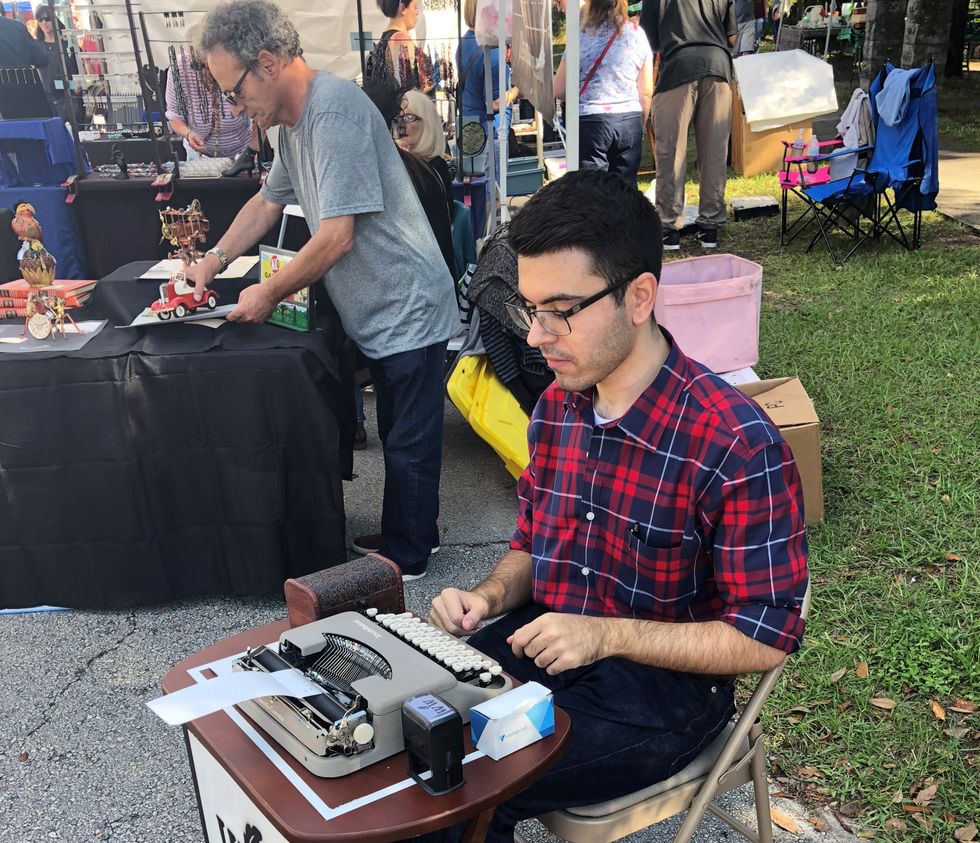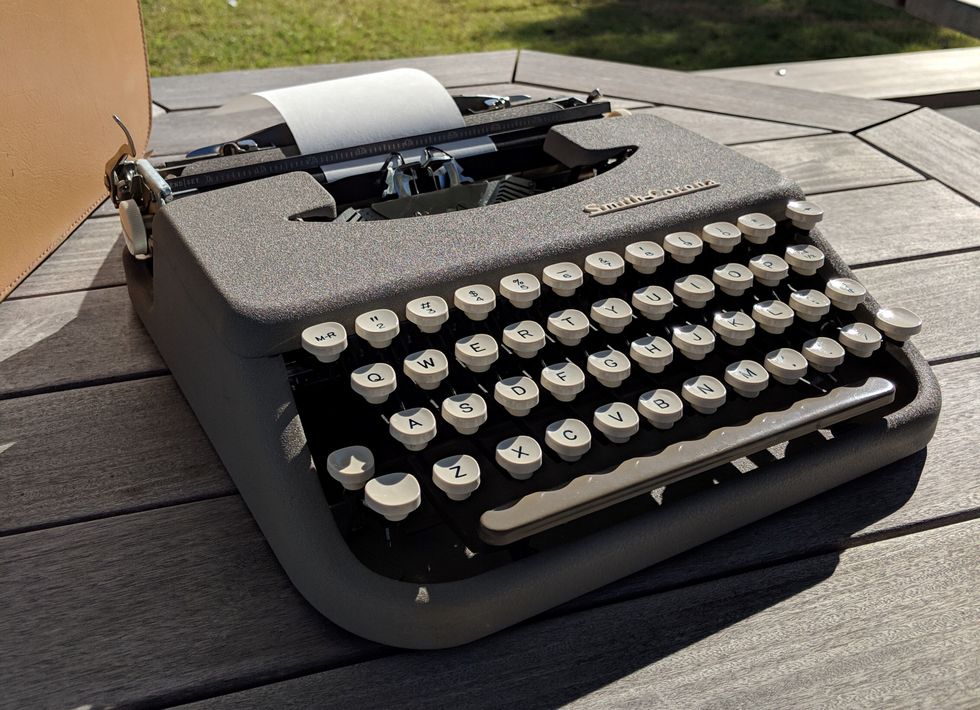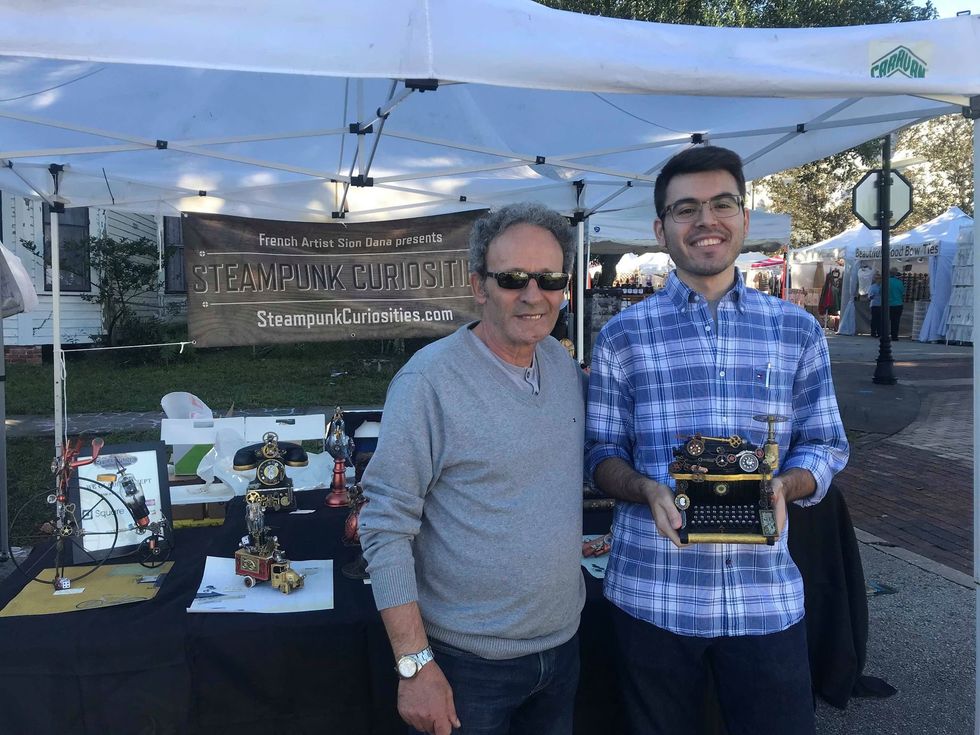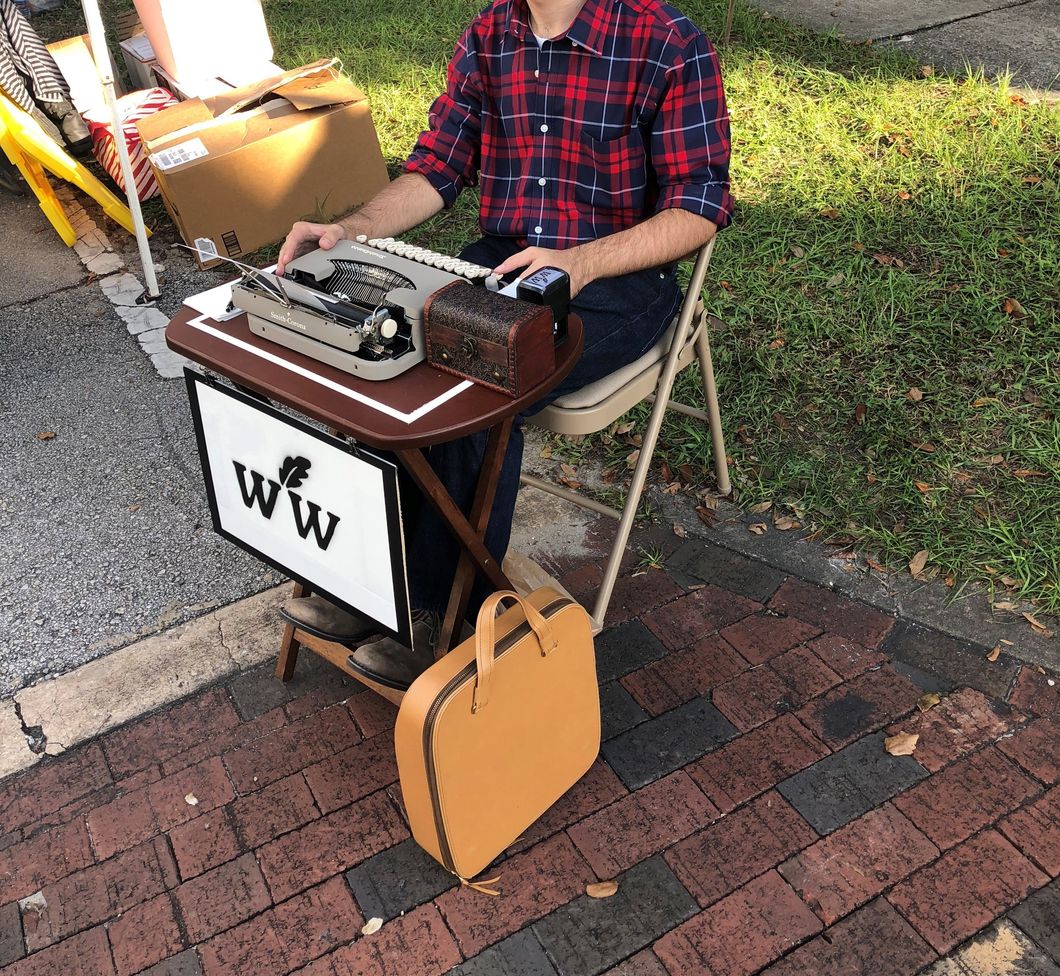People are strange but curious. They do things we never thought of and we see how different yet interesting they can be. Reasons not our own cannot always explain why they do the things they do.
Personal cliffhangers, all of us, everyone so different and the same, from the first to the last. If we can look past our differences, and see what makes each of us unique, people would be more tolerable and open to who you are and others are.
Most sing a song, play an instrument, or both for anyone who can hear. Some juggle while performing improvisational rhythmic gymnastics or bang out speedy percussion on empty, upside-down baseball buckets and paint cans.
Few do something rare and niche, something that has not met eyes in a long time. Like a roller derby at a disco rink, an arcade next to a drive-in movie theater, or a game of marbles and Pogs in the park.
No, I didn't grow up in the sixties, seventies, or eighties, nor do I claim to be "born in the wrong decade." I do what any sensible person would do: I write and send messages via typewriter.
Anachronists, classicists, modernists, this is for you.

I had an inkling of doubt growing up that I was not so much a friend to others as much as I was an acquaintance. Kids my age came to me with their questions, and I would give my answers and two cents, but sometimes it left me two cents less.
An outsider is not labeled, but unlabeled. An outsider is misunderstood but understood by himself and by others like him. An affection for mysterious and lonesome characters like Batman and the Incredible Hulk grew on me. "I Play Chicken With The Train" by Cowboy Troy is one of the first songs I unashamedly bought on my second-generation iPod nano.
Whatever everyone else liked, I liked questionably or not at all, and the status quo treated me unanimously with its indifferent, same old roll of the tide. I couldn't explain myself either, since talking meant drawing attention to myself. But not talking meant not getting the attention I deserved and that was the paradox I was comfortable and uncomfortable with.
I confided in the authors and books that I read, people and stories that defined themselves with as much inspiration as they liked. Ray Bradbury, Roald Dahl, and more were responsible for my introduction and future love for writing.
Metaphors became different pairs of glasses to see and explain the world I lived in and around. Or more literally, the reason I began to wear glasses; I got my glasses doing something smart... reading in the dark.
My thoughts were like slow, meticulous fish and now they had another vessel to play in rather than swim and sink inside my dense and condensed aquarium mind.
I started a blog freshman year of college, which laid dormant for years until I found a renewed love for writing with the typewriter. I always wanted to know how writers made their living with these hand-operated, office machines.
People used typewriters out of necessity back then, but who used them now and for what need?

Quite a few typewriter enthusiasts have their reasons, like mechanist Joe Van Cleave from Albuquerque, New Mexico, and poets Jacqueline Suskin and Rebecca Rimmer Givens, who do the very thing I dared to do, something rare and niche.
The typewriter is a tool that runs on willpower where instantaneous and permanent work resides. The computer is a tool for instantaneous but endless and persistent revision, a glutton for any and all information, questionable, reliable, and otherwise.
The typewriter creates, the computer manipulates.
I bought my typewriter from a Michigan woman named Dorothy who recently passed and decided to get her out of the cold and under the Florida sun. A coffee shop or a bench in the park would be too distracting, but a fall festival of artists and patrons of the arts felt right.
I made my sign, my modest attempt at marketing myself, bought a chair and TV tray, and the rest depended on the curious halt of festival goers. Five minutes later, a woman named Virginia Silberstein and her father, the artist, Sion Dana welcome me to their shop, Steampunk Curiosities.

The festival started early morning, and I didn't attend until late afternoon, but it was perfect timing. I shared the space with the French family and bought a beautiful sculpture from Dana, a typewriter, a steampunk dream.
Four hours later, and I typed eleven poems for eleven people, each with their own stories.
Busking was never something I thought of doing. The hesitating fear of wandering eyes and backhanded compliments that turn into uninformed or unfair judgments rested comfortably with its feet propped up on the back of my mind.
There was nothing that would bring me to use my typewriter out in public. Drawing attention to myself was a death wish. That and the fact that a busker always felt like a fancy word for pilferer to my unenlightened mind. I know now that couldn't be further from the truth.
Buskers make it look easy. The street corner is their neighbor and second home. They peddle their talents for as long as they can sit or stand. No matter how infrequent their side hustle is, they are back at their usual spot with newfound discipline each time.
With Dorothy and people who need the right words to say, I think I can busk just the same, or different, with the best of them.
Busking makes everything a work in progress, and the true busker's work is never done.
















